Search Results
Showing results 81 to 100 of 178

Color Spy
Source Institutions
In this activity (16th on the page), learners play a variation of the "I Spy" game to explore color. Learners work in teams with each team assigned a color.
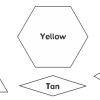
Fantastic Fractions
Source Institutions
In this math lesson, learners compare pattern blocks to visually understand halves, thirds, and sixths.
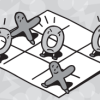
Toe-Tac-Tic
Source Institutions
In this activity, learners play a game similar to Tic-Tac-Toe. In this version, learners try NOT to get three-in-a-row. The player who gets three-in-a-row first loses!
Take a Guess
Source Institutions
In this activity, learners use what they know about probability to figure out what is in a mystery bag. Learners analyze data to guess how many of each color crayons are in the bag.

Taste Match Game
Source Institutions
In this activity (3rd activity on the page), learners taste test different foods and categorize them as sweet, bitter, sour, or salty. Learners compare their results with the group.
Narrow It Down: Asking Yes-No Questions
Source Institutions
In this activity, the learner asks yes-no questions to identify a secret object (similar to Twenty Questions). This game is easy to adapt for different ages and different kinds of contexts.
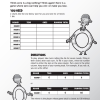
100 or Bust
Source Institutions
In this Cyberchase activity, learners play a game where zero can help them win--or make them lose! Learners roll the die and place a zero in the tens or ones place.
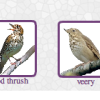
Thrush Songs: An Interactive Game
Source Institutions
In this interactive game, learners listen to the songs of four different thrushes and then try to match each bird with its song.
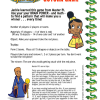
Gotcha Game
Source Institutions
In this Cyberchase activity, learners play a simple game using 15 paper dragons (or any 15 objects). One of the 15 dragons is red. Learners try to make their opponent take the red piece.

Dicey Directions
Source Institutions
In this game, learners are stuck in a right turn only world! Learners take turns rolling a die and moving their game pieces along the lines of a grid to get "home," by only making right turns.

Tossing Coins
Source Institutions
In this math game (Page 17 of the Are You Game? PDF), learners investigate probability by tossing coins.
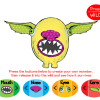
Monster Evolution
Source Institutions
In this online activity, learners create monsters and see how they survived when released into the wild.
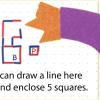
Close It Up
Source Institutions
As learners play this challenging strategy game, they build understanding of area and perimeter. On each turn, a player draws a line between two dots next to each other on the grid.

Nowhere to Hide
Source Institutions
In this online simulation, learners can see adaptation and camouflage in action.
Any Year Calendars
Source Institutions
This PDF contains 12 calendars (12 months). Each month contains activities about math. Things to do on familiar holidays (like July 4), less common holidays (like Backward Day), and any day.
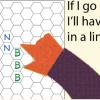
Four in a Line
Source Institutions
This strategy game has simple rules but can be a challenge. Players start with an empty hexagonal grid. On each turn, a player initials one empty hexagon on the grid.
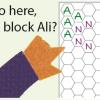
Touch and Go
Source Institutions
As learners play this game, they develop logic, geometry, and spatial visualization skills. Players start out with an empty hexagonal grid.

Neuron Chain Tag
Source Institutions
In this outdoor activity, learners play a game of Tag to discover how neurons attach themselves to each other to form a chain.

The Great Toss Off!
Source Institutions
In this math game, learners toss plastic cups to land just right and collect points to win.
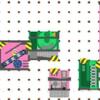
Mechanical Madness
Source Institutions
In this online Flash game, learners test their engineering know-how, moving a collection of mechanical parts onto a board to make complete a system of parts that will move a ball from start to finish.
